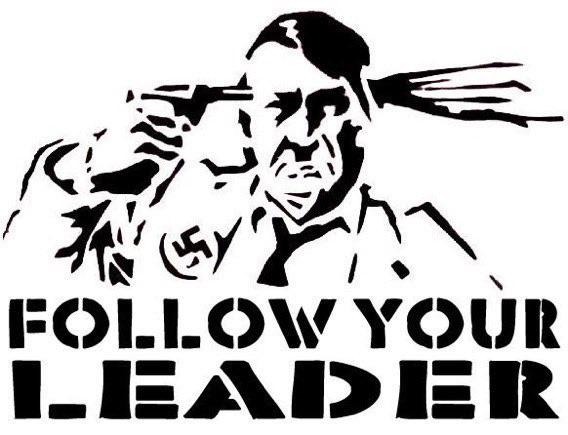I’m just curious about this. As someone with a chronic illness, I pretty much never hear anyone talk about things related to the sorts of difficulties and discrimination I and others might face within society. I’m not aware of companies or governments doing anything special to bring awareness on the same scale of say, pride month for instance. In fact certain aspects of accessibility were only normalized during the pandemic when healthy people needed them and now they’re being gradually rescinded now that they don’t. It’s annoying for those who’ve come to prefer those accommodations. It’s cruel for those who rely on them.
And just to be clear, I’m not suggesting this is an either or sort of thing. I’m just wondering why it’s not a that and this sort of thing. It’s possible I’m not considering the whole picture here, and I don’t mean for this to be controversial.
I would assume that first and foremost it’s that, as the old saying goes, the squeaky wheel gets the grease. And disabled people and their advocates aren’t squeaky enough.
Cynically, I think there’s another explanation…
I think a lot of activism doesn’t actually generate meaningful results. To some significant degree, it just serves as something for people to fight over and politicians to fundraise and campaign on.
To serve those purposes though, it has to be controversial - there has to be a basis on which one party can take a stance in favor and the other a stance opposed. And another handy feature of that sort of activism is that it doesn’t have to actually be enacted, and in fact, it’s better for the politicians if it’s not. That means that the ones who supported it can fundraise and run merely on having supported it and on the need to counter the evil other party who opposed it, while those who opposed it can fundraise and run merely on having opposed it and on the need to counter the evil other party who proposed it. And since no money was spent on any program, that’s that much more money the politicians can funnel to their cronies. It’s basically free publicity with a bit of “Let’s you and them fight” mixed in.
And LGBT might as well have been tailor-made for that exact purpose.
But with something like advocacy for the disabled, there’s no basis on which either party could dare oppose it, so there’s nothing to fight over, and worse yet, if it’s proposed, there’s no excuse for not passing it, which means they’d have to pay for it, and that’s money that they’d rather be funneling to their cronies.
So politicians mostly just ignore it.
IIRC, the LGBTQ rights gains of the 2010s were accompanied by the message that it’s not a choice.
Too many people still believe that health and ability are markers of virtue. These people believe that a sick or disabled person must be undersleeping, forgetting their vitamins, being lazy, skipping church, eating junk food, or even thinking negative thoughts. It’s a big lie people tell themselves to feel safe. “I do everything right, so nothing bad can happen to me.”
It won’t get any better until everyone realizes that it can happen to anyone.
deleted by creator
It’s not stupidity, it’s the Just World Hypothesis. A classic example is that thing people do when when driving by a car accident. Many people will look at the wreck and say, “They must have been texting.” Or, “They must have been speeding.” People make up fanfiction to reinforce their feelings of safety. The same thing happens with health and ability.
why did you go straight into attacking their local culture rather then consider this as a fundamental human behavior
deleted by creator
Being visibly disabled in public will bring these people out of the woodwork. You might not associate with any, but they’re everywhere.
Being non-visibly disabled is even worse, people will literally just not believe you if they can’t see it.
That’s been my experience.
Exactly, why insult the fine people of Moronistan? Most Moronistans I met are really nice people. Been there on holiday a couple of times.
Wow, you’re a dick
It’s harder to throw a parade?
It’s really hard for some disabled/chronically ill people to join a protest or a rally/march too. There were a small group of protesters outside Downing Street here in the UK a while back, calling for changes in how disabled people applying for benefits are assessed. I would have loved to join them but it’s so far beyond my capabilities the idea is almost laughable. Creating public awareness or demonstrating your discontent with the status quo is really hard when your practically housebound.
Christ 😂
I’ll settle for a cereal box. :P
Early Tomm Scott.
This is actually true. Parents of disabled kids were trying to rally in my country for better school support but unfortunately parents of autistic kids couldn’t take them (and many are autistic too) because of the noise and commotion that revolves around a protest. Those are really triggering circumstances and no one wants to be in pain.
There are disability advocates and most industrial nations are trying to make things more accessible.
I guess it would help if you could bring up one particular issue that you face.
A few difficult reasons.
- People with chronic illnesses frequently don’t have the energy to make noise and bring attention to their cause.
- People with significant disability usually aren’t hiding in the halls of power, blending in. It’s significantly easier to hide a non-straight sexuality for long enough that you can be the decision maker who makes reform happen.
- Disability is so varied, one person with one disability can’t know what it is like to have a different one. This stymies cross-disability advocacy. This gets even harder for family of people with disabilities, who only conceptually maybe understand their loved one’s conditions, let alone other people’s
- Accessibility accommodations can be complex and can be expensive, LGBT+ inclusion is extremely easy and low effort by comparison.
- Understanding how disability affects daily life pervasively is harder than understanding “those two people are in love”. Most people internally assume everyone else has roughly the same abilities and needs as themselves.
- People with congenital conditions are frequently conditioned into not asking for better treatment. They get used to being second class citizens because it’s all they’ve ever known.
- “Coming out” with a disability casts doubt on your ability to “perform” in the workplace. It’s very risky, the stigma of disability is huge and impacts how people evaluate you
- Most people with disabilities don’t consider themselves disabled. For example, glasses are one of the world’s most common disability aids, but you’ll never hear them referred to as such; and rarely will their users consider their poor eyesight a disability. Mobility disabilities are often written off as “I’m just getting old” or “I’m just a little unfit lately” or “it’s just an old injury playing up” instead of “I have a medical condition which limits my daily life”.
There’s more, I’m sure I’m forgetting a bunch.
Edited to add a huge one:
- People who are born with disability or who acquire them at a young age are frequently unable to access the type of formal education that allows them to become professionals. This makes it even harder for them to be visible in workplaces, because they’re considered “unskilled”. It also means you won’t see people with disabilities regularly in offices. Out of sight, out of mind for everyone else.
And another:
- Money is medical privilege, and the people with the most money make the types of decisions that affect larger quantities of people. For people with disabilities who are born to wealth or who are able to acquire it, their medical conditions can be better treated, managed and therefore hidden. This can result in those people and the people who surround them to not feel like the illness is “a big deal” and hence it’s not a priority issue. It’s when people with significant money are negatively affected that you begin to hear about the barriers people with no money experience all day long.
This is a great write up. Thank you.
I will add another thing. Many disabled people aren’t working force Because they can’t/there’s no acoomodation, etc What this means is that they don’t generate money And corporations/capitalism don’t care for people who are a burden
LGBT and chronically ill checking in. So, the biggest reason (in the US) is because the chronically ill haven’t had their civil rights movement. I think a lot of history books gloss over just how many riots there were pre 2000s to gain basic human rights. Pride parades are not just a big party - they’re a commemoration of the stonewall riots. Protests were held annually for years, and cities began sponsoring the marches so they’d become peaceful protests. Now we have parades. It was a constant uphill battle with people fighting against their very existence being illegal. For being jailed, tortured, or murdered for showing their sexuality. For being blamed because someone who’s repressed or in the closet considers someone who’s out to be “temptation”.
LGBT rights are much closer to black and womens rights than they are to chronic illnesses. We don’t see people being jailed for needing a wheelchair, or murdered for having an auto immune disease. If you can get a large number of people to riot for the right to work from home, you might get results. Until then we’ll have to wait until things change through the legal system.
It’s hard to have your movement when you’re disabled. I think we chronically ill will need allies more than other groups have.
That all makes a lot of sense, but I would point out that people with disabilities and illness have been murdered for their conditions even in our recent past. It was actually a story about a German politician wanting to remove kids with disabilities from schools which got me thinking about this. It feels like we’re one or two bad ideas away from persecution of the sick and disabled becoming a very present concern again.
And personally speaking, it is true what you say that I’m not jailed for my condition, but as far societies willingness to extend accommodations to make life more livable for myself and others like me, it’s as if I’ve been largely under house arrest for over a decade. The isolation and anxiety that people experienced for a brief period during the pandemic has been my everyday life for years and years.
LGBTQ+ issues are kind of a warzone right now, because conservatives see trans rights issues especially as a wedge issue they can use to pull in people who might support gay marriage but still feel confused or grossed out by things like trans women using women’s bathrooms.
This conversation eats up a lot of the space that could be used to talk about things that would (should?) actually be less controversial, like accessibility.
Conservatives don’t want to talk about it because it would be a straightforward loser for them. Lots of progressives don’t have time to talk about it because they’re circling the wagons to fight for trans people having the right to… (checks notes) exist.
This isn’t to say disability issues aren’t as important. The point of intersectional activism is for many disparate groups to fight together against the kinds of people who want to separate them. A rising tide that helps everyone.
It sucks because it’s slow and painful and people get increasingly tribal when they feel under threat.
People don’t take pride in those things like they do being gay, bi or trans.
I’m a proud depressive with adhd, don’t ask me anything please leave me alone
Mood
No point in riding bikes, then?
❤️
Even in that regard, people who have cancer are often portrayed as fighters, survivors and what not. We don’t frame people who deal with chronic issues day in and day out for the rest of their lives that way though, or at least not to the same extent. We don’t treat it as if they have something to teach healthy people about resilience.
At most we have overly happy ads for medicines which constantly mischaracterize what it’s like to live with certain conditions and which give healthy people the perspective that help is just a drug away. I’m not saying those can’t help, but the ads give the impression that if you’re not living a full life, that’s on you because we’re surrounded by miracle cures.
Some mental illnesses are “cool” or “accepted” now. They are socially acceptable to talk about and having one can even give you clout. Depression and ADHD are in this category.
The rest of the disabilities are still too taboo to talk about. You are better off just keeping it to yourself. Bipolar, schizo-affective, and borderline personality disorder are in this category.
Today, people will tell you with a straight face that they are a victim because they have one of the popular illnesses. It is “in” to be a victim now but, ironically, it’s only socially acceptable to be a victim of some illnesses. If you have e.g. bipolar disorder it’s so stigmatized that you will face repercussions for announcing it yet people still have the audacity to tell you they are a victim.
I don’t think it is about taking pride in being ill, pride was just an example. Its likely more about visibility and having rights and accommodations.
Although, they should be proud- not proud to be ill, but proud of their ability. Sick and in pain people have to traverse a world most people could never imagine.
A lot of businesses look on people with disabilities as an expense rather than a market. And politically they’re too diverse to be considered a voting bloc except for certain issues. But July was Disability Pride Month… https://www.womansday.com/life/a43964487/disability-pride-flag/
Really not trying to be an asshole here… But why would anyone be proud of being disabled?
Perhaps reframe it as pride in still living, surviving, sometimes even flourishing in the face of a society that will not accommodate you. It’s also a really direct counter to the shame that is so prevalent amongst disabled people. I have an invisible disability and it’s taken many years for me to even accept that I am disabled, nevermind be happy with it, you know?
Yeah that would be a good idea.
Why shouldn’t a person be proud? They constantly use lateral thinking and creativity to maneuver through the world, and their disability is part of their unique identity. Their disabilities cause some of their problems but society causes more. Living with a disability doesn’t make a person less worthy of respect, self-respect, or pride in who they are. Having to face attitudes like yours every day is why we need to have celebrations of disability pride.
I wouldn’t call it pride, but I’m aware that a not insignificant portion of people would have just committed suicide rather than experiencing what I’ve gone through. Especially people who pride themselves on abilities that depend on being healthy. To experience something like years of torture and then to find a way to keep laughing is not insignificant.
No chronic illnesses and not LGBTQ here, so please correct me if I get anything wrong.
The reason many LGBTQ issues sees widespread support now wasn’t because governments and companies decided it was ok, it was because of decades of small battles and struggles that really accelerated into widespread acceptance throughout the 10’s, and to which we are already seeing a backlash in terms of the attacks on trans rights (just to note that acceptance is far from complete or just a constant journey in one direction).
Companies adopted pride not because they are allies but because it became more profitable to be pro-LGBTQ than against. Govs don’t work off profitability exactly, but public opinion shifted so far that Obama went from tepidly approving of civil unions to basically every mainstream democrat being pro-LGBTQ now. Even many Republican senators signed on to the Respect for Marriage Act in 2022.
I don’t have a lot of answers for why that doesn’t exist for people with chronic issues / disabilities yet. I’m sure there are many people working to advocate to make it so and I think we all have a responsibility to encourage accessibility as a right. I don’t think anyone saw the acceleration of pro-LGBTQ popular acceptance that was the 10’s coming, and I don’t think you can attribute it to one particular cause. The tough and unsatisfying answer is “it’s complicated,” but I hope that the example of LGBTQ progress can be a source of solidarity and support for advocating for accessibility.
Those of us with chronic disabilities tend to have to be very careful about how we spend our energy. Obviously it varies from person to person, disability to disability. But a lot of us just…can’t. We can’t lobby our local politicians or run for government positions, we can’t go to protests or rallies, we can’t volunteer for campaigns–we just can’t. Or at least, not much. Again, it’ll depend on the person.
And even organizing can take a lot of energy. Someone would have to organize all of us together, across all of these many different disabilities. How do you find them all and reach out to them, let alone manage to do all of that organizing despite your disability?
I know it can happen and that’s how the ADA was created, but the hurdles are great.
Totally fair, and I think that’s why allyship and solidarity are so important. I can’t speak to what it feels like to have a chronic disability, but I can amplify the voices of those who do and help to organize broader coalitions in support of accessibility.
I appreciate the hell out of you, thankyou.
This is exactly it. Many days I can’t even get out of bed. Very little I can do from there.
deleted by creator
That’s a fair point. I was reading about Harvey Milk the other day and what the situation was during that time.
Corpos can’t monetize it as easily as they can with lgbqt
Your place of work should be willing and likely already has a policy in place to accommodate disabilities. Talk to them about your needs.
If that gets you nowhere, seek a less shitty employer. I’d start by trying to find other people with the same/similar disability and asking about the companies they work for. Once you find a good one that’s compatible with your area of expertise, keep an eye on their postings.
What you DON’T want to do is just suffer in silence - no company is going to lift a finger for you unless you specifically ask it to.
There’s the ADA in the States at least.
Used to be no place had ramps and no curb cuts.
Not perfect, but it is better.
I think the ADA is a positive step, but that was over three decades ago now. The silence in terms of further steps since then is significant.
There hasn’t been silence, I think you’re just not listening: https://en.m.wikipedia.org/wiki/Timeline_of_disability_rights_in_the_United_States
I’ve lived it every day for the last dozen years. I think I know what my experience in this regard has been.
Given that people who are disabled have, seriously, a LOT more legal protections regarding housing, employment, equal access, etc, than people who are LGBTQ, as well as specialized pathways to income and health insurance, I’m just wondering what you want to be different? Are you referencing the time of year when companies slap rainbows on everything and wondering why that doesn’t happen for people who are disabled?
I should also point out large segments of the US population actively persecute people who are LGBTQ, while there is no equivalent political animus toward people who are disabled
Like what? You want a month? Do you know when National Disability Employment Awareness Month is? I’ll give you a few minutes to go look it up.
Having a month dedicated on a calendar is fine, but it doesn’t mean much if it doesn’t impact society in any significant way.
How about for accessibility and visibility to be the norm, not just something that gets whipped out when the regular folks have a problem.
The ADA is so much more than wheelchair accessibility too, people with disabilities have much more potent federal laws on their side than the LGBTQ community does
I mean, you’re basically describing the point of intersectional activism.
Time for a wiki-kick. I don’t know much about it. I’ve literally been living outside society for over a decade.
Your not alone. Same here. Lots of ideas round here.













